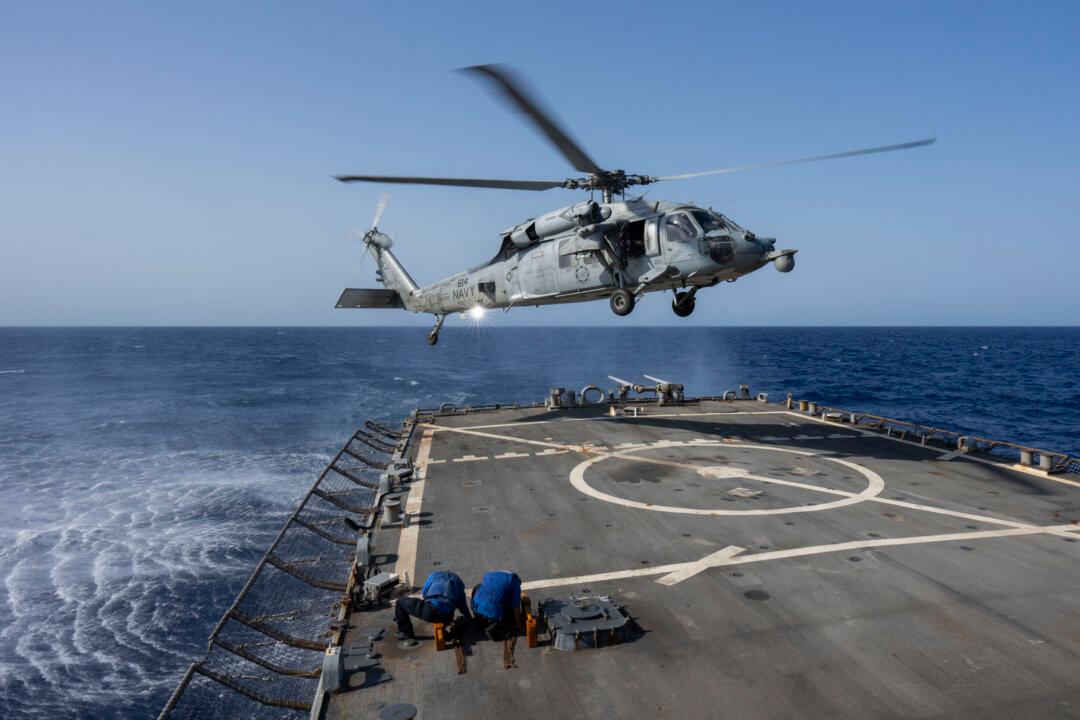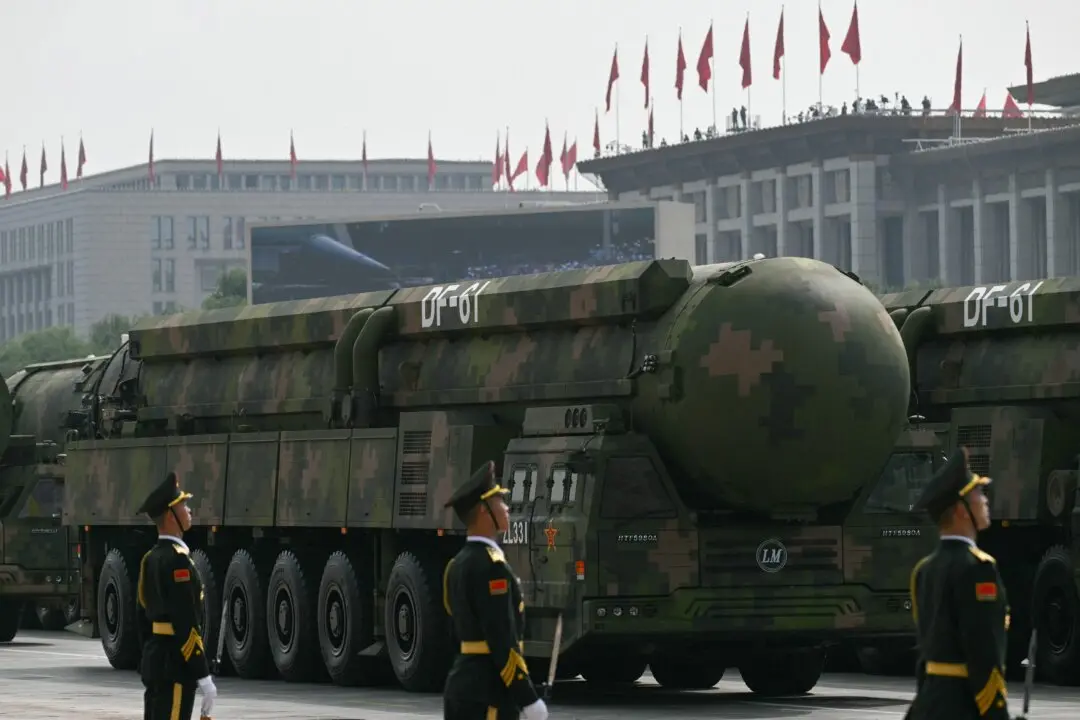The Houthi terrorist group in Yemen severely damaged a Liberian-flagged cargo ship on June 12 using an explosive-laden drone boat, also known as an unmanned surface vessel (USV).
The Houthis remotely drove the explosives-laden boat into the Liberian-flagged bulk carrier M/V Tutor, inflicting “severe damage to the ship,” a spokesperson for the group said in a statement.





